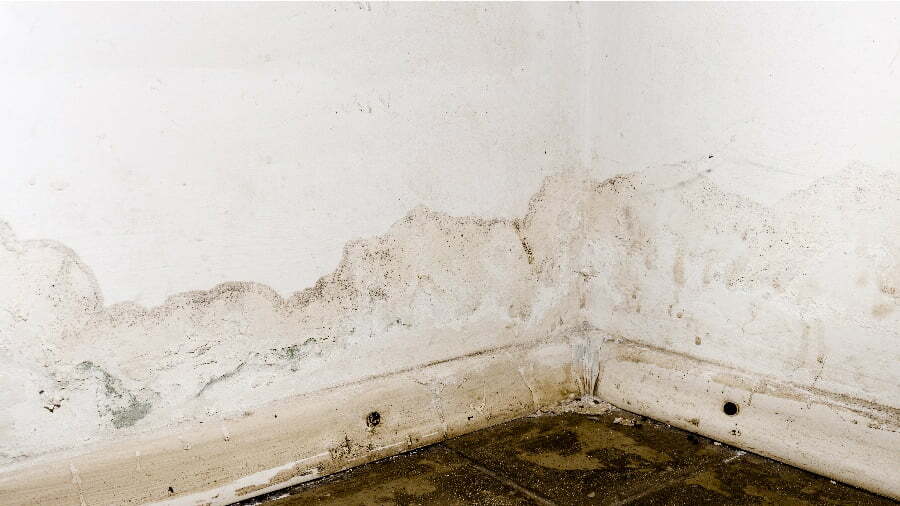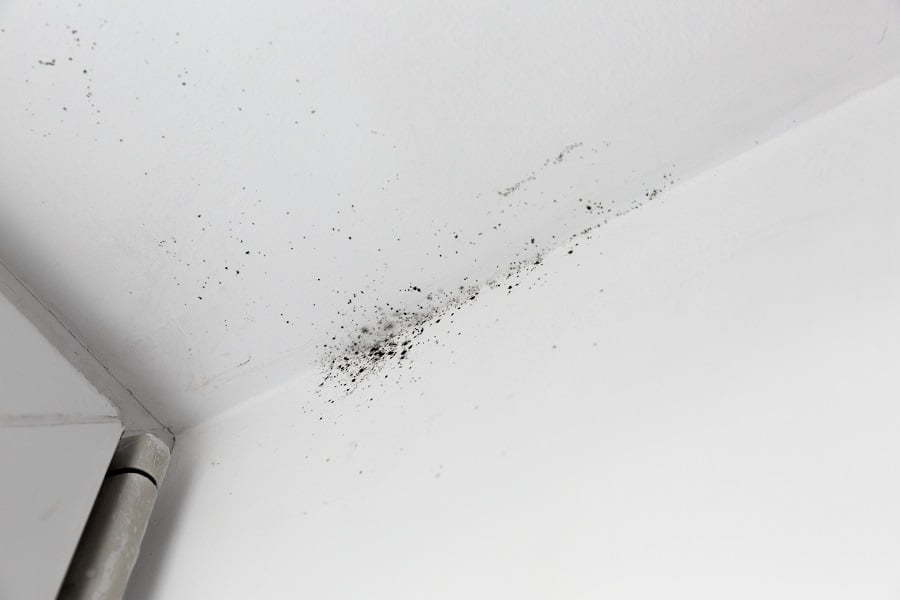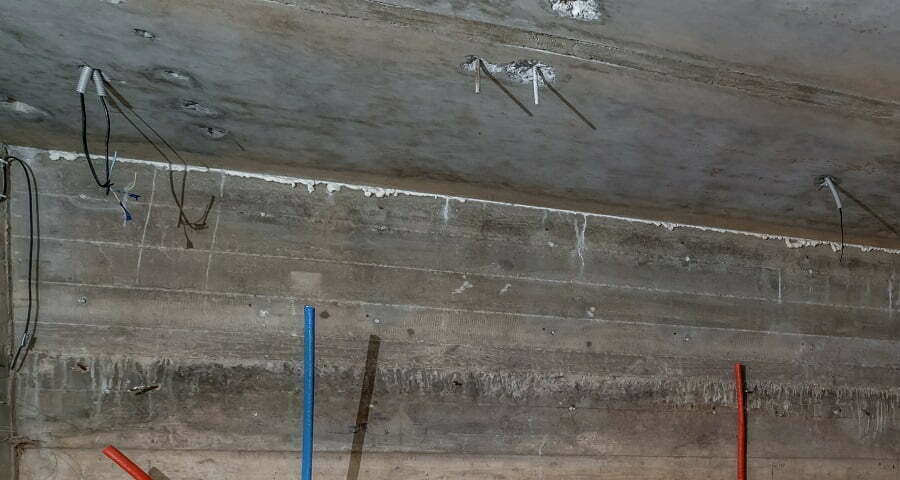Last updated on
Basement mold is a problem that starts small and gets bigger over time if it’s not addressed.
Mold tends to form in the basement because of excess moisture there, but there are some things you can do to keep mold from growing in the basement, minimize its spread, and deal with it once it does start forming.
Handle Leaks Quickly

Is there any water leaking into the basement? Maybe there’s a crack in the basement wall that water gets into or there’s plumbing in the basement that’s dripping and creating a moisture-rich environment for mold.
You want to seal up cracks as soon as you find them, and you should be checking for both cracks and leaks regularly so that the basement stays secure.
Some cracks can be sealed up very quickly and easily using caulking, although larger ones may need more extensive repairs, including masonry work.
Don’t treat any leaks as a small issue that can be dealt with later on. If you can’t have the leak repaired right away, at least turn off water to the basement so that the leak stops.
Water can seep into places in the basement that you cannot reach or access, creating a mold problem that’s incredibly hard to deal with.
Eliminate Mold Food Sources

Water attracts mold, but it also needs a food source to keep growing throughout your basement. Any wood in the basement will serve as food for mold, making it more difficult to eliminate. Mold also thrives off of plant matter, so you want to keep these things out of the basement.
You may not be able to get rid of wood in your basement if you have trimming or pillars made from wood, but you can seal the wood so that water and mold cannot get in and so that the mold can’t use the wood as a food source.
There are lots of reasons to keep wood outside beyond mold prevention, including to prevent fire hazards and termite infestation.
Clean Regularly

Part of keeping mold out of your basement or any room is making sure that the area stays clean. Keeping a clean space prevents mold food sources from accumulating. It also helps you identify mold, leaks, and cracks at an early stage.
Alex who runs a cleaning company recommends: it may help to hire a cleaning service to do a more thorough cleaning so that you get rid of mold that is hiding in your home and to help you catch problems early on.
A quick cleaning every so often may not catch very much, but a thorough cleaning can make a big difference in keeping mold at bay. Cleaning a couple times a week can help you catch mold as soon as it starts to grow into the basement.
Minimize Moisture
What can you do to keep water out of your basement? Look for anything in the basement that can create water.
A lot of people use their basement as a laundry room, and a washing machine or a sink used for laundry chores can create excess water in a space that is prone to mold infestation.
If you’re having mold problems in the basement, it’s advisable to move your laundry equipment out of there to a different space in the house. As inconvenient as that may be, it can be incredibly helpful in minimizing mold in your home and keeping the basement smelling nice.
Look for other fixtures and appliances in the basement that can be a source of water. Consider sealing or insulating your pipes so you minimize the risk of leaks and fortify the pipes from damage.
It may be necessary to upgrade your plumbing in the basement so that it can handle changes in temperature, weather, and pressure. This will help your pipes last longer and prevent the leaks that can lead to mold growth.
During winter months, the change in temperature can cause your pipes to burst, creating a huge plumbing issue and leading to mold problems. Make sure your pipes are well insulated before then.
Make Use of Dehumidifiers
You can actively get rid of excess moisture in the basement by using a dehumidifier. This reduces the humidity in this space so that mold is less likely to grow.
Don’t just use any kind of dehumidifier, though, as you want one that’s large enough for your space and that can handle the area of the basement. If you have a large basement or a small dehumidifier, you may need to use several dehumidifiers to keep the humidity level low.
FAQ
It’s much easier to keep mold out than to get rid of it once it’s there. There are specialized chemicals you can use to kill mold, but it’s very difficult to completely eradicate it on your own with products you buy off the shelf. You may need to hire a mold remediation service to deal with the issue, especially if the mold keeps coming back.
Mold creates an unpleasant, musty odor, which is much worse in poorly ventilated spaces like the basement. It also eats through organic matter like wood and plants. Mold spores spread through the air invisibly and can create breathing issues, allergic reactions, and other health problems. Mold is especially dangerous for people who have asthma or breathing difficulties of any kind.
Mold is typically green or black, but some mold can be white as well. Mold grows in damp spots and spreads quickly wherever it can find water and food. It has a distinctive musty smell, so you may be able to detect it even if it’s growing inside the walls. If you think you have a mold problem but are not sure, you can call a mold remediation service that will use specialized tools to detect mold spores even where you can’t see them.
Recap:



